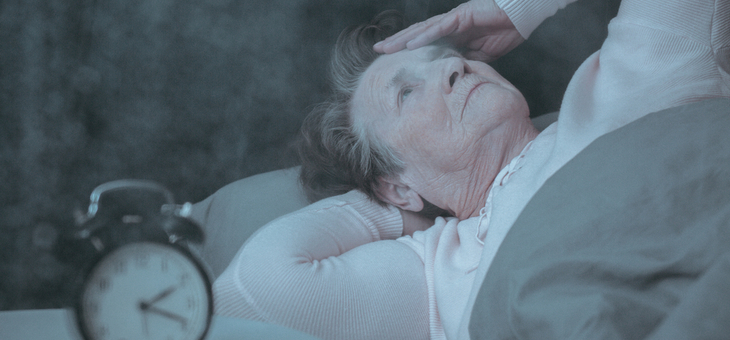Dementia often goes undiagnosed while people are active and awake, so it may come as a surprise to many that scientists now think they can diagnose it in your sleep.
Researchers from Massachusetts General Hospital (MGH) and Beth Israel Deaconess Medical Center have discovered a biomarker for dementia that can identify individuals with or at risk of developing dementia.
They’ve used this discovery to create the Brain Age Index (BAI) – a machine learning model that uses artificial intelligence and analysis of sleep data to estimate the difference between the chronological age and the biological age of a person’s brain while they sleep.
“The model computes the difference between a person’s chronological age and how old their brain activity during sleep ‘looks’, to provide an indication of whether a person’s brain is ageing faster than is normal,” said senior author M. Brandon Westover.
In the study, published on Jama Network, researchers analysed 5144 sleep tests in 88 individuals with dementia, 44 with mild cognitive impairment, 1075 with cognitive symptoms but no diagnosis of impairment, and 2336 without dementia.
They found a high BAI number could reflect the presence and severity of dementia.
BAI values rose as cognitive impairment increased. Patients with dementia had an average BAI value of about four years older than those without dementia.
“This is an important advance, because before now it has only been possible to measure brain age using brain imaging with magnetic resonance imaging, which is much more expensive, not easy to repeat, and impossible to measure at home,” added study first author Elissa Ye.
“This study found that the sleep EEG-based BAI showed potential as a biomarker associated with deviation from healthy brain ageing, including processes leading to dementia.
“Sleep EEG is increasingly accessible in non-sleep laboratory environments, including the home, and using wearable technologies, such as headbands and dry EEG electrodes. Thus, it is feasible to obtain multiple nights of EEG. Clinical utility at an individual level requires further development and testing, including using wearable technologies and multiple nights of data.”
“We expect that measuring BAI will one day become a routine part of primary care, as important as measuring blood pressure,” said co-senior author Alice D. Lam, MD, PhD, an investigator in the Department of Neurology at MGH. “BAI has potential as a screening tool for the presence of underlying neurodegenerative disease and monitoring of disease progression.”
Would you be keen for a home study to diagnose dementia early?
If you enjoy our content, don’t keep it to yourself. Share our free eNews with your friends and encourage them to sign up.
Related articles:
https://www.yourlifechoices.com.au/health/news/alzheimers-car-wash-discovered
https://www.yourlifechoices.com.au/health/brain-health/dementia-and-alzheimers-explained
https://www.yourlifechoices.com.au/health/your-health/dementia–through-sufferers-eyes

